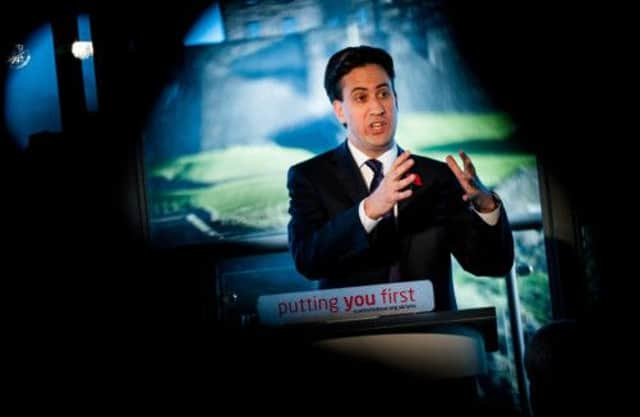Leaders: Miliband needs a new Falkirk inquiry


The latest of these is an evident endorsement by the Labour leader of the way that Labour officials in Falkirk sought to sign up close relations as party members, without their knowledge or consent. Questioned on a visit to Edinburgh yesterday, Mr Miliband answered in a manner that suggested he was perfectly happy for people to be signed up to his party in this manner so long as the signing up was done by a family member who subsequently signed a sworn affidavit. Perhaps he was unaware of the implications of what he was saying; or that this was not the impression he wished to convey. But such were the words he used it is not possible to arrive at another interpretation. The affair, he insisted, had been fully and thoroughly investigated; the party had a “sworn affidavit” that Michelle Hornall had been signed up as a party member in Falkirk by her father. While Mr Miliband admitted there had been “machine politics” in Falkirk, he repeated his refusal to reopen an inquiry into the allegations.
How can it be acceptable for people to be signed up to a political party without them actively choosing to do so? Is this method of “blind” recruitment limited to parents? Might Labour not want to specify the familial connection – brother-in-law, cousin, and stepmother – lest it gives carte blanche to distant relations at several removes from the recruitment target?
Advertisement
Hide AdAdvertisement
Hide AdIf the Labour leader truly sees nothing untoward in this, he may have missed his true vocation – as a high pressure loan salesman. But even here such a practice would attract the attention of the regulator. This method of recruitment to a political party with the aim of securing votes in a parliamentary candidate selection smacks of extremely sharp practice, and one the Labour leader would be quick to condemn in any other field. But so much has emerged from the Falkirk affair that the conduct of party officers seems a relic of the past and quite detached from any sense of ethical standards. That an affidavit has been sworn to verify this method of recruitment and that this somehow relieves the party from resuming its inquiry into allegations of vote-rigging is little short of astonishing. Mr Miliband’s declaration to an audience of supporters yesterday that Labour wanted to “rebuild trust with the people of Falkirk” only adds to the Alice in Wonderland quality of his behaviour.
As Alistair Darling, the former Labour chancellor, has stated, the party must renew its inquiry into events at Falkirk – but it must also state clearly and unequivocally that it will no longer accept members who do no actively choose to join.
Credit to spy chiefs for breaking cover
They didn’t descend from the sky like James Bond actor Daniel Craig at the Olympics. And none of them looked remotely like Alec Guinness’ Smiley. Our spymasters who appeared in front of the House of Commons intelligence and security committee yesterday appeared suitably nondescript, faces you would quickly forget in a crowd. But then, that’s the point of spies.
MI6 chief Sir John Sawers, GCHQ chief Sir Iain Lobban and Andrew Parker, who handles agents within the UK, deserve some credit for showing up, considering their keen professional aversion to public exposure in a political theatre. But three developments compelled yesterday’s remarkable public appearance. The first is the leaks by the former US security contractor Edward Snowden which revealed widespread spying by GCHQ and the US National Security Agency. The extent of this surveillance, its modus operandi and authorisation are matters of high public interest given our traditions of personal privacy and apprehension over the monitoring activities of government into citizens’ lives.
The second is the revolution wrought by communications technology with resultant concerns over data protection. And the third is the substantial rise in the budget of the security services to combat terrorist threats. Balancing a duty to protect the public from dangerous and well-organised would-be killers and explaining exactly how you are doing it is bound to create conflicts.
Everyone – even the spooks – has to be held to account. That they recognised this, given the nature of their responsibilities, is to their credit.